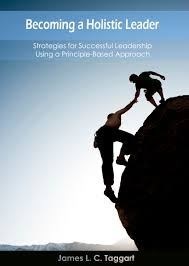Turning People On to Teamwork

It’s important that leaders set the proper context—the atmosphere—for teamwork. Remember, teamwork is not an end to itself. It’s built around the need to accomplish something. A common purpose, mutual accountability, interdependence of effort, and trust serve as the foundation to building a strong team.
In building a strong team, it’s vital in the early stage that people learn about themselves. They need to understand their own strengths and weaknesses and what they need to do to respond to the latter. They must develop their own personal visions of what they want to achieve in their lives and how they’re going to realize this. And a key component of this is people taking responsibility for their personal growth and development. This is achieved best by adopting a lifelong learning philosophy, one in which the team member strives to continually improve himself or herself.
Following this approach will enable a team’s members to transcend to team learning. In essence, this is not just about sharing information. More importantly, it’s about the existing boundaries among team members. Interpersonal learning takes place when the members must depend on one another for their own rewards. Of course, this raises such issues as resolving conflict effectively, solving problems collaboratively, and running productive meetings.
Turning people on to teamwork means creating those conditions that allow people to meet their personal needs by performing the work themselves. Instead of motivation, what drives people forward is commitment, in which their energy is directed towards a goal. To build commitment is less a matter of changing the person as it is creating the right conditions.
The team leader requires special skills if he or she is to be successful in fostering team learning and in setting boundaries for the team. These essential skills include: leading the team towards creating a common vision and team goals, communicating clearly and concisely, running productive meetings, and solving problems quickly, as well as anticipating them.

In a team setting, this requirement to earn the privilege of being the team leader cannot be overstated. The leader’s purpose is to inspire and mobilize the team to higher levels of performance. The leader achieves this by enabling the team’s members. And this can only be done if the leader gives up control. This is one of the most difficult challenges many managers will experience in their careers. Yet it’s essential if the members of a team are to assume greater responsibility and ownership for their work.
Abraham Maslow made this poignant comment on control and authority, and one that should be heeded by aspiring leaders: “When the only tool I have is a hammer, I tend to treat everyone like a nail.”
Don’t forget that an effective team isn’t just concerned with getting work done but also with how it gets done. Process (how decisions are made) is critical. Strong teams with solid leaders don’t compromise or vote. They operate by consensus, guided by their common vision and purpose.
In teamwork, silence isn’t golden, it’s deadly.
— Mark Sanborn
____________________________________________________________________________________________________

Articles from Jim Taggart
View blog
The following 10 lessons are not aimed at just those who wish to move into managerial positions; the ...

The leadership field—and its cousin management—has an over abundance of information, from books, per ...

In my last post we looked at The Five Levels of Teams: Where Are You on the Team Performance Curve? ...
You may be interested in these jobs
-
carpenter, framing
Found in: Talent CA 2 C2 - 11 hours ago
White Eagle Homes Ltd Edmonton, CanadaEducation: Secondary (high) school graduation certificate · Experience: 2 years to less than 3 years · Work setting · Construction · Various locations · Renovation · Tasks · Measure, cut, shape, assemble and join materials made of wood, wood substitutes, lightweight steel and oth ...
-
administrative assistant, legal
Found in: Talent CA 2 C2 - 5 days ago
I Gérald Lévesque Corporation Professionnelle Edmundston, CanadaEducation: College, CEGEP or other non-university certificate or diploma from a program of 1 year to 2 years · Experience: Experience an asset · or equivalent experience · Work setting · General law practice · Property and real estate law · Tasks · Schedule and confirm appointmen ...
-
Finite Scheduler
Found in: Talent CA C2 - 6 days ago
Teva Pharmaceuticals Whitchurch-Stouffville, CanadaThe opportunity · We are currently seeking a Finite Scheduler to join our team. This is a full time opportunity, located in Stouffville Ontario. · The tasks and responsibilities of the Finite Scheduler will include but are not limited to: · Utilize the DS scheduling tool / RRP3 ...



Comments